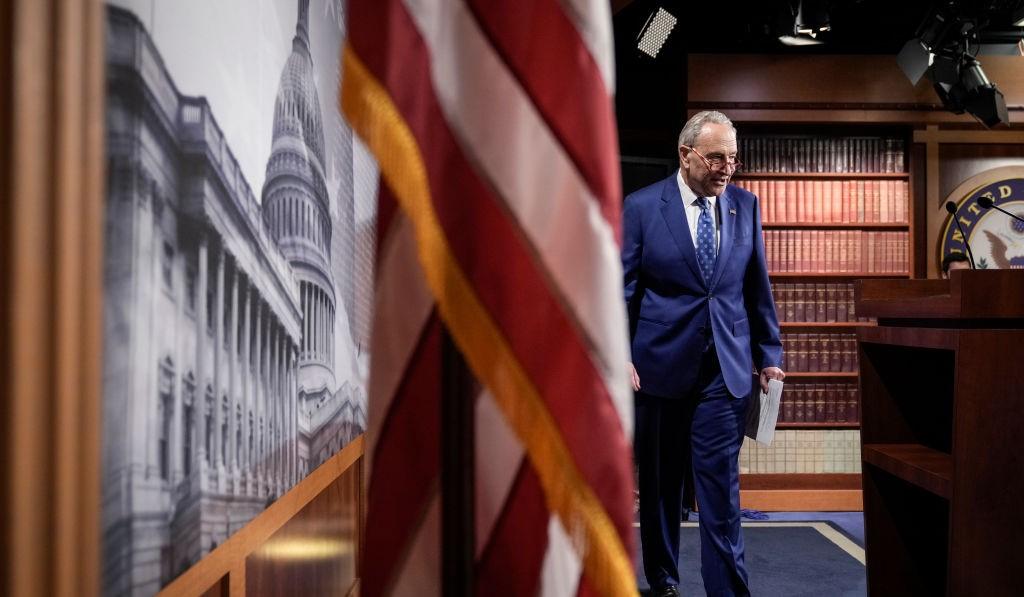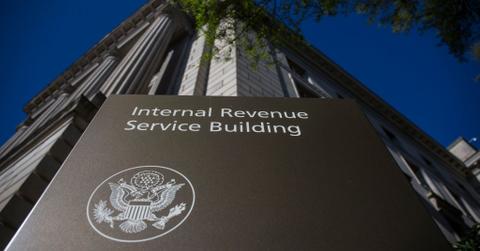Stock Buybacks Receive Favorable Tax Treatment Even With Tax Code Change
Stock buybacks will see a tax code change after the Senate passed the Inflation Reduction Act of 2022, but the maneuver still receives favorable tax treatment.
Aug. 8 2022, Published 2:10 p.m. ET
Days after Elon Musk announced in an earnings call Tesla is considering share buybacks in the near future, the U.S. Senate passed the Inflation Reduction Act of 2022.
The climate-forward legislation is funded in part by a small tax added to corporate share buybacks, slightly hindering — but not eliminating — the vehicle’s favorable tax treatment.
The Inflation Reduction Act of 2022 adds 1 percent excise tax to stock buybacks.

Senate Majority Leader Chuck Schumer (D-N.Y.) speaking after Senate passes Inflation Reduction Act of 2022
The Senate passed the Inflation Reduction Act of 2022 over the weekend leading up to Monday, Aug. 8 with full Democratic support (centrist Sen. Joe Manchin of West Virginia included). In addition to a 15-percent minimum tax for large corporations, the bill receives funding from a 1-percent excise tax on corporate share buybacks.
Excise taxes aren't a typical type of tax on stock market transactions, but the new legislation expands the tax category beyond alcohol, tobacco, and other goods, services, and activities.
Many companies regularly buy back shares to increase their internal equity value or consolidate. Listed companies often, but not always, use debt to buy back the shares because the loan interest is tax deductible.
Howard Silverblatt at S&P Dow Jones Indices told CNBC, “I do not see the [one percent] tax inhibiting corporate buybacks or dividends due to the additional [cost].” However, Goldman Sachs Chief U.S. Equity Strategist David Kostin said it could reduce the earnings per share by half a percentage point.
Do other taxes accompany stock buybacks?
Stock buybacks are favorable for shareholders because they don't incur the same capital gains taxes as dividend payouts. This will remain the same. Stock buybacks could remain a popular option for public companies seeking positive investor sentiment.
On the company side, stock buybacks can actually be advantageous because interest paid through financing the payments is a tax-deductible expense.
The 1-percent excise tax won’t go into effect until January 1, 2023. As a result, corporations could potentially push out stock buybacks at a speedier pace until then to avoid fees. Even after the excise tax goes into effect, stock buybacks will remain comparatively favorable in the tax department, both for companies and shareholders.
Stock buyback taxes could impact big corporations.
According to S&P Global, the top five companies buying back the largest amount of shares by dollar value are Apple Inc. (AAPL) at $91.3 billion, Alphabet Inc. (GOOGL) at $54.5 billion, Meta Platforms Inc. (META) at $53.2 billion, Microsoft Corp. (MSFT) at $32.7 billion, and Bank of America Corp. (BAC) at $21 billion. These companies accounted for about 25 percent of all buybacks by dollar value. The top 16 companies buying back shares account for 40 percent of all buybacks.
With that said, the 1 percent excise tax added to share buybacks targets ultra-large corporations, much like the 15-percent minimum corporate tax pushed forth in the same legislation. That’s the whole point — and funding ongoing initiatives like climate infrastructure through corporate money could be a sustainable source of revenue and position the U.S. as a renewable force to be reckoned with (even if to the GOP’s dismay).

